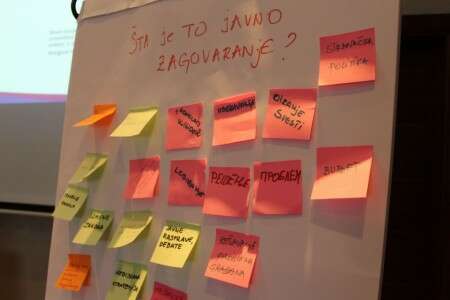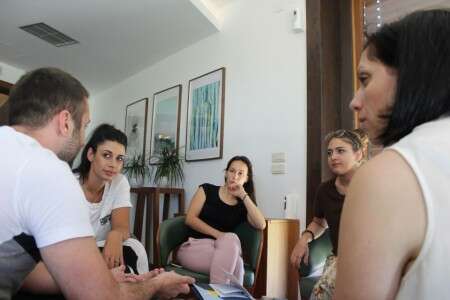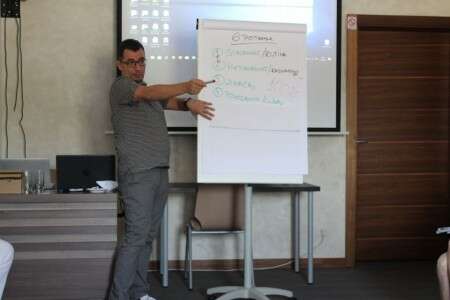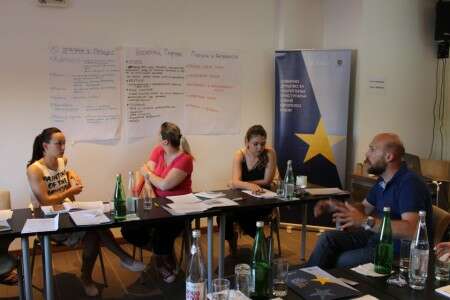What is advocacy? What is the difference between marketing and advocacy, is advocacy the same as lobbying? At Srebrno jezero, from June 30 - July 2, the second to last training within the CS4EU project we tried to answer these and many other questions.
Belgrade Open School (BOS) has organized a training on "Planning and Implementing an Advocacy Campaign" for civil society organizations that have recognized advocacy as an important tool for influencing policy changes.
BOS lecturers Vladimir Pavlovic and Ana Stevanovic talked about advocacy as a method, a series of steps that should enable organized citizens not connected to government to make a change, influence decision-makers and get the general public on their side. They will do this by presenting their view on a particular social issue and persuading decision makers to embrace their approach to problem solving.
Without culture, there is no sustainable change in society
What are the things that citizens can advocate for? It is not uncommon for the first, correct association to be that advocacy is used for advocating of new laws or regulations, or for their change. In addition, it is important that institutions which implement the laws are accountable, functional, responsive to the needs of citizens in a timely manner, and therefore it is advisable to also have advocacy for improving institutional structures or decision-making procedures as well. However, in order for these changes to be sustained and not susceptible to the changing political climate, citizens should also be a part of the target group for advocating in order to influence social opinions and thinking, so that the topic itself will not only become sufficiently known and widely supported to be high on the decision-makers' agenda, but will also become a part of the values and culture of the society itself and thus achieve its stability.
It is also important to separate advocacy from similar concepts
The Dear Aunt Experiment
Sometimes it happens that a good idea forms for the change we want to advocate, but it isn't enough because we have not made an advocacy plan and clear messages to present to the public and decision makers. That is why the lecturer from the National Coalition for Decentralization, Mladen Jovanovic, emphasized the importance of a focused, precise message that we formulate. The basic message must be made simple and then, having in mind who we are sending it to, it should be deepened, but not spread out to even more topics. This can confuse the listener and dilute the support.
How do we make sure our message is understandable enough for everyone, if we are to target the whole society? Write in a few sentences the essence of your advocacy, striving to be concise and precise. One of the "tricks" when you do this is to read them again, but this time start each sentence with "Dear Auntie". If the sentence in this form sounds too official, professional or cold, change the words or tone you used to create the message until it sounds natural.
____________________________________________________________
(1) Civil Society as a Force for a Change in Serbia's EU accession provess is a project which Belgrade Open School impements third year in a row with the support of Sweden.





